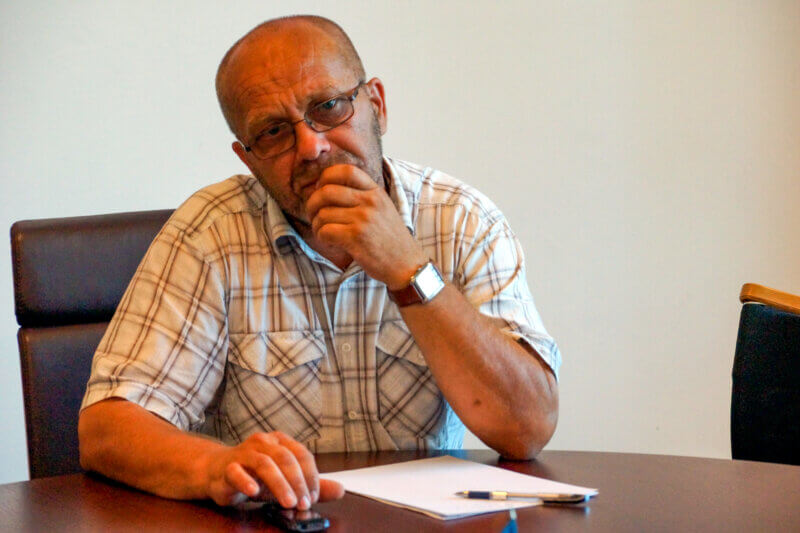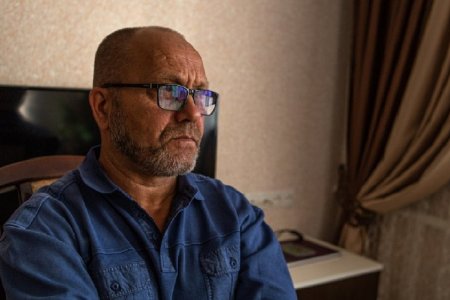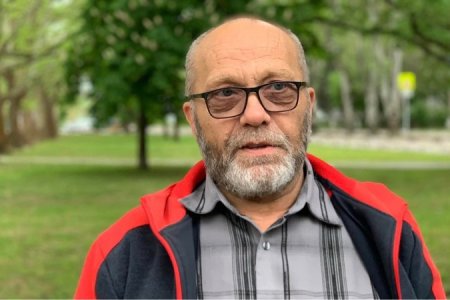
Abdureshit Dzhepparov has been jailed for 12 days after masked FSB and other enforcement officers with machine guns burst into the family’s home early on 25 April and effectively abducted the prominent veteran of the Crimean Tatar national movement and human rights defender. It was only late on Tuesday evening that lawyer, Edem Semedlyaev learned that Dzhepparov was being held in a temporary holding unit, and the next morning before he was allowed to see Dzhepparov and discovered that a supposed ‘court hearing’ had, in fact, taken place the previous day. While the FSB and police claimed to Dzhepparov’s family that they knew nothing about his whereabouts, the ‘Bilohirsk district court’ was rushing through a ‘ruling’ sentencing him to 12 days’ administrative arrest. The formal pretext was manifestly absurd, but this is not the first time, that the occupation authorities have carried out repressive measures against Dzhepparov, and preposterous charges are no impediment for Russian-controlled ‘courts’.
Dzhepparov, his wife and 14-year-old daughter were asleep when the FSB burst in on Tuesday morning. The officers seized Dzhepparov himself and immediately took all mobile phones away to prevent them from contacting lawyers or Crimean Solidarity human rights activists. Dzhepparov’s wife, Niara Abdurayimova asked who the men were, but received no answer. “I asked what had happened – they said ‘extremism’”.
Their ‘search’ lasted until 10 a.m., with the officers removing all technology; the video from the outside CCTV camera; working papers; a Ukrainian state medal and passports, as well as taking Dzhepparov away. It has now transpired that an enforcement officer claimed that Dzhepparov had “shown resistance” when they took away his computer, with this used as the formal pretext for an administrative charge under Article 19.3 of Russia’s Code of administrative offences. Dzhepparov denied showing any resistance during this illegal ‘court hearing’, held in secret, without his lawyers being even informed of it, let alone allowed to be present.
It is unclear only whether administrative arrest was always planned, or whether the FSB intended only to abduct him for many hours and then release him.
Even the latter was an act of particularly brutal lawlessness since Abdureshit Dzhepparov and his wife have already been through the personal hell of one Russian enforced disappearance. On 27 September 2014, the couple’s elder son Islyam Dzhepparov, who was just 19, and his 23-year-old cousin Dzhavdet Islyamov were seized by masked men wearing black uniforms, forced into their Volkswagen minivan and taken away. Despite the testimony of witnesses and the fact that even the registration number was known, the occupation authorities made little or no effort to find either the two young men, or their abductors.
Although by far the most brazen, this was not the only abduction / enforced disappearance during the second half of 2014, and it was widely suspected that the Russian occupation regime were deliberately using the same methods of terror against Crimean Tatars, that they had used in Chechnya.
Abdureshit Dzhepparov and other human rights activists reacted to this terror by founding the Crimean Contact Group on Human Rights. The Group tried to learn what had happened to those who had disappeared and also monitored human rights violations on the occupied peninsula. It effectively ceased its work, however, after the arrest on 11 February 2016 of human rights defender Emir-Usein Kuku, who had been responsible for monitoring violations in Yalta and the Yalta region. Kuku faced a likely attempted abduction in April 2015, which turned into an ‘FSB search’ (and beating) only after Kuku managed to shout and attract the attention of passers-by. He had also been subjected to persecution for Facebook posts before he became one of six men from the Yalta region arrested on fake ‘terrorism’ charges. All six men are recognized political prisoners and Amnesty International prisoners of conscience.
After the Crimean Contact Group effectively folded, Abdureshit Dzhepparov continued his work in gathering information about human rights violations under Russian occupation. He took part in the Crimean Solidarity human rights movement, and also cooperated with a number of Ukrainian, Russian and international human rights organizations.
All of this made him an obvious target for the Russian occupation regime. He is among the prominent Crimean Tatars who regularly face harassment in the form of so-called ‘warnings about the inadmissibility of extremist activities’ on the eve of Crimean Tatar anniversaries and special dates
The occupation regime, however, went a step further on 16 March 2022. In the early morning on that day, Ruslan Shambazov, the notorious head of Russia’s so-called ‘centre for countering extremism’, and his henchmen turned up at Dzhepparov’s home. They carried out something that they called ‘an inspection’, although this lasted three hours and bore all the hallmarks of a search, just without a search warrant. They took Dzhepparov away, and also detained his two nephews, Fevzi Yakubov and Mukhammed Ali Dzhepparov. As has become the illegal norm in occupied Crimea, Dzhepparov’s lawyer Emine Avamileva was prevented not only from being present during the ‘inspection’, but also from seeing her client in the police station.
On that occasion, Dzhepparov was charged over a video clip posted over two years earlier on social media. The song on the clip compared a Soviet march with the Nazis. Although this was very clearly an unfavourable comparison, the song was used as a pretext for bringing charges against Dzhepparov under Article 20.3 § 1 (‘propaganda or the public demonstration of Nazi symbols, or those of extremist organizations’).
Although Dzhepparov told the occupation ‘Bilohirsk district court’ that he had not been demonstrating a Nazi symbol, but showing that the authors of the song were also propagandists, he was jailed for fifteen days.
Just over a year later, the FSB again came for Dzhepparov and used equally absurd charges to imprison him.



